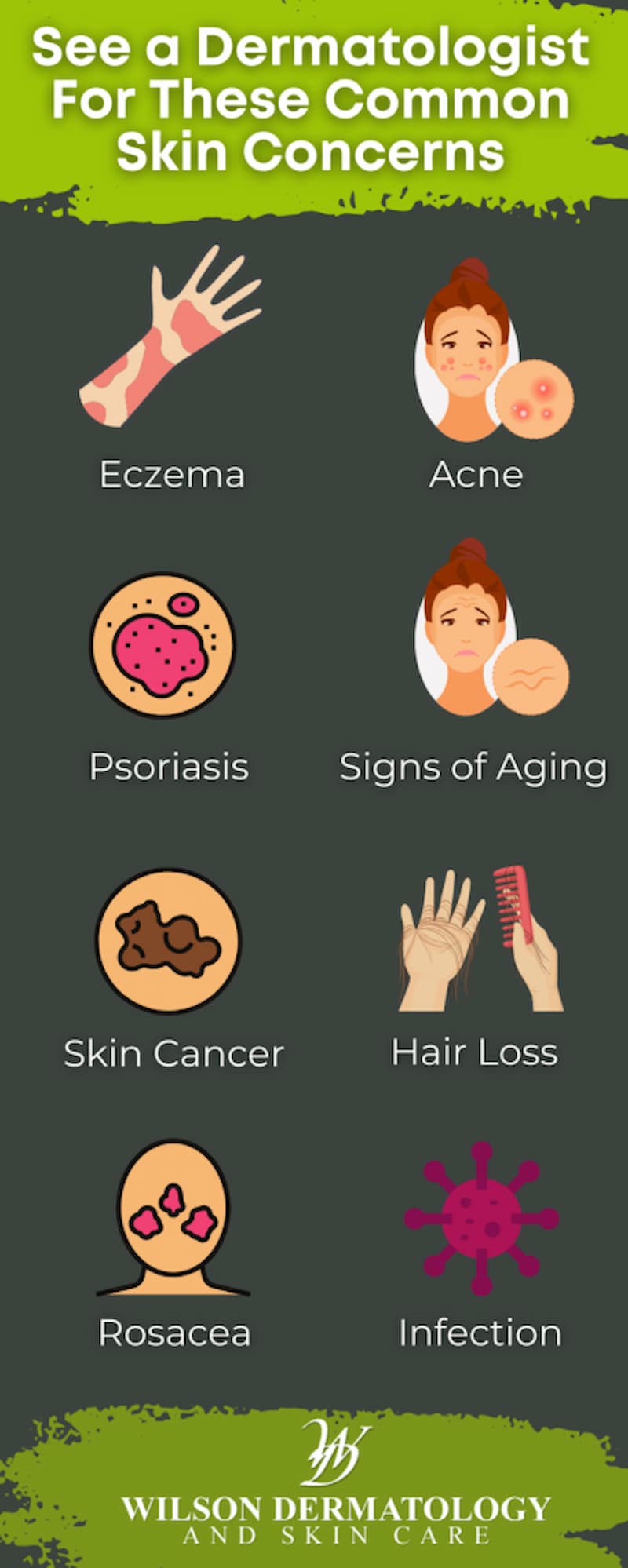Locate a trusted dermatologist near you for skin care.
Locate a trusted dermatologist near you for skin care.
Blog Article
Browsing Skin Cancer Treatment: The Necessary Function of Mohs in Modern Dermatology Practices
Skin cancer cells, a difficult medical diagnosis, typically leaves people grappling with various therapy alternatives. Amongst these, Mohs surgical procedure stands as a sign in modern-day dermatology, renowned for its thorough method to cancer cells removal and conservation of bordering healthy cells. This ingenious method assures not just exceptional cosmetic results but additionally offers immediate results, reducing client stress and anxiety. As we explore the ins and outs of this treatment, one will certainly value its crucial duty in skin cancer cells therapy.
Understanding Skin Cancer Cells: Kinds and Risks
Skin cancer, a possibly deadly condition, is far much more common than many individuals understand. This condition, brought on by the unrestrained growth of uncommon skin cells, largely results from DNA damage as a result of direct exposure to the sun and ultraviolet (UV) light. There are three primary sorts of skin cancer cells: Basal cell cancer, Squamous cell cancer, and Melanoma. While the former two are less deadly and make up the bulk of diagnosed instances, cancer malignancy is one of the most hazardous. It accounts for only concerning 1% of skin cancer cells instances however triggers the huge bulk of skin cancer cells fatalities - skin cancer. Danger elements include fair skin, background of sunburn, excessive sun direct exposure, living at high altitudes or close to the equator, having many moles, a family history of skin cancer cells, and compromised immune system.
What Is Mohs Surgery and Just How It's Changing Skin Cancer Cells Treatment
Regardless of the numerous therapies presently readily available for skin cancer cells, Mohs surgical treatment stands apart as a groundbreaking and extremely effective option. Named after Frederic E. Mohs, the medical professional who created the procedure, Mohs surgical procedure is a precise medical method made use of to deal with skin cancer. During the treatment, slim layers of cancer-containing skin are progressively removed and taken a look at till just cancer-free cells continues to be. This technique permits the specialist to confirm that all cancer cells have actually been gotten rid of at the time of surgical treatment. This degree of precision, incorporated with the ability to spare as much healthy cells as feasible, is reinventing skin cancer cells therapy. Because of this, Mohs surgical procedure has ended up being a foundation of contemporary dermatology methods.
The Benefits of Mohs Surgical Procedure Over Conventional Skin Cancer Cells Treatments
Building on the innovative nature of Read More Here Mohs surgical treatment, it's important to consider its many advantages over typical skin cancer cells treatments. Unlike standard operating procedures, Mohs uses a greater treatment price, frequently reaching 99% for novice therapies and 94% for recurring cancers. This accuracy is due to its one-of-a-kind strategy of gradually removing and taking a look at cells layers till only cancer-free cells remain (dermatologist). Additionally, it reduces damages to healthy and balanced skin, leading to less scarring and boosted aesthetic results. Mohs likewise offers immediate outcomes, removing the anxiety-ridden delay typical with other techniques. Finally, it's cost-efficient, as the surgical treatment and tiny assessment occur concurrently, removing the need for extra lab services. Thus, Mohs represents a considerable development in skin-related techniques.
The Procedure of Mohs Surgical Procedure: What to Anticipate During the Process

Potential Adverse Effects and Post-Operative Care of Mohs Surgical Treatment
Undergoing Mohs surgical treatment, like any type of other surgery, involves possible side effects that clients need to recognize. Common negative effects consist of pain, bruising, and informative post swelling at the surgery website. These are typically temporary and workable with non-prescription pain medicine and ice packs. In rare cases, individuals might experience infection, blood loss, or an allergic response to the anesthetic. Post-operative treatment is crucial to recovery and reducing adverse effects. This typically entails maintaining the injury clean and dry, taking recommended drugs, and preventing arduous activities. Patients should additionally go to all follow-up appointments for wound care and monitoring. Sometimes, added therapies may be necessary to make certain complete removal of the malignant cells. Following these post-operative care standards can substantially boost recuperation and end results.
Verdict

Report this page